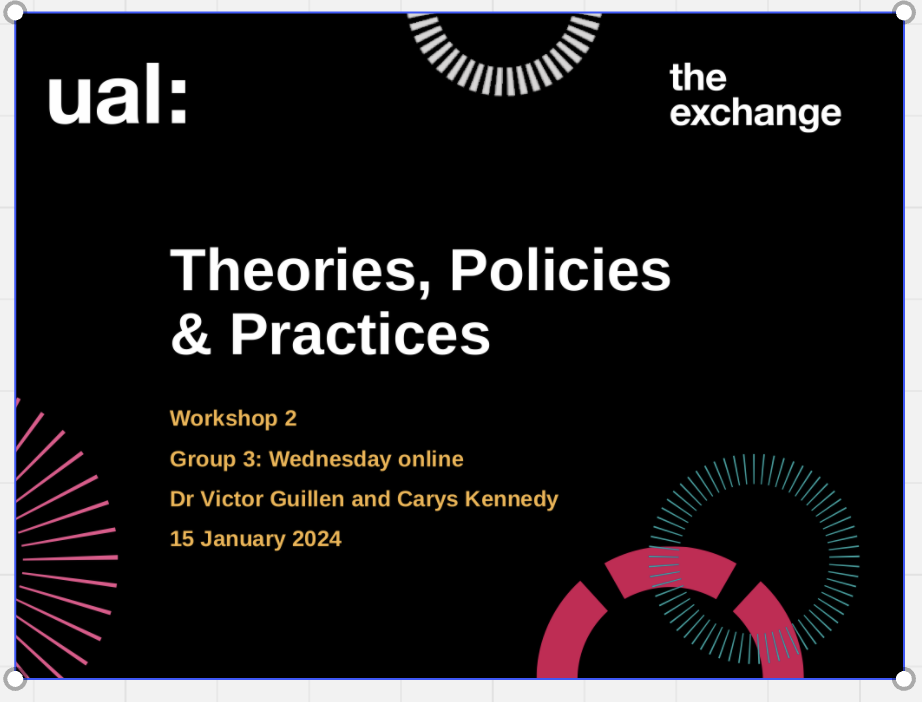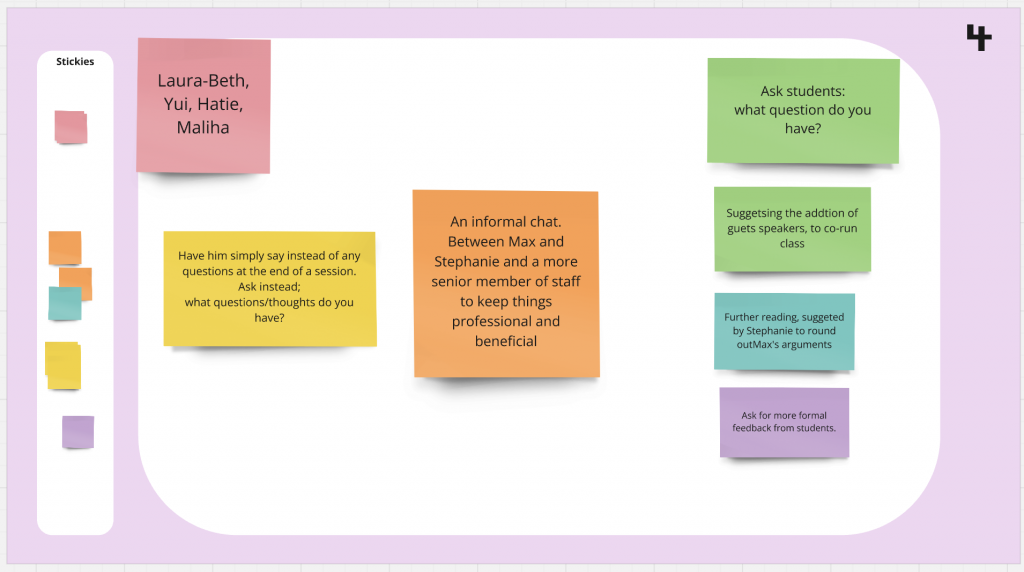
We started the session by reading the Charismatic Lecturer – a piece about a lecturer who was very popular with students, in receipt of many favourable evaluations and someone whose lectures were well attended. However, when peer-reviewed, the reviewer noticed some key flaws, namely that the lecturer demonstrated bias and an inability to take on feedback. We were tasked with making suggestions on how we might approach the situations as a colleague expected to peer-review the lecturer and take steps to balance the views of this lecturer. After the exercise, I was particularly interested in points Carys made around the idea that white, male lecturers might receive favourable reviews for reasons other than the quality of the teaching. I assume that she was referring to homophilly and bias towards a ‘traditional’ looking lecturer. I was interested in her points around how hearing from different perspectives might mitigate his strong opinions and how marginalised groups felt about his lectures. It reminded me of the dangers of survey data, and why I ultimately chose not to use it within my own PhD thesis, as some groups might be motivated to submit favourable reviews to support someone whose views they admire and sit comfortably with their own. Those with opposing views might simply not engage with the survey process.

This led to a discussion around peer reviews and tutor reviews for the PGCert. This really feeds into my insecurity around my role, in the same way as the micro-teaching did. I often find it difficult to differentiate my official job title as Course Leader and Lecturer and my day to day activities which feel far from the academic world. My role centres around Industry engagement (through arranging speakers, placements, Live Briefs etc), holding sessions on CVs, showreels and facilitating workshops from external partners around Social Media, Networking and other employability roles. I also act as part of the production team for all of the Live Briefs that we engage in as part of the actual DPS year. I cannot define my ‘teaching’ in a traditional sense, until I get to the assessment stage of DPS which is in May.
Weller refers to the PGCert as an unofficial ‘confirmation of academic probation,’ (2009, p.25). Whilst I have a PhD, my lack of teaching experience often means a lack of confidence amongst my peers. A positive peer-to-peer review could be hugely beneficial to my practise, as a means of providing ‘reassurance and confidence-building,’ (Blackwell & McLean, 1996, in Weller, 2025 p.26). However, I also need to provide convincing, thorough and meaningful feedback for a member of staff. Literature on the topic cites numerous benefits to peer review including effective peer relationships, enhanced teaching and academic engagement (Carroll and O’Loughlin, 2013; Yiend, Weller, & Kinchin, 2012). All of this could serve to bolster my confidence as an academic.
Bennett, S., & Barp, D. (2008). Peer observation – a case for doing it online. Teaching in Higher Education, 13(5), 559–570. https://doi.org/10.1080/13562510802334871
Carroll, C., & O’Loughlin, D. (2013). Peer observation of teaching: enhancing academic engagement for new participants. Innovations in Education and Teaching International, 51(4), 446–456. https://doi.org/10.1080/14703297.2013.778067
Weller, S. (2009) International Journal of Teaching and learning in higher education,
IJTLHE. Available at: https://www.isetl.org/ijtlhe/ (Accessed: 01 April 2025).
Yiend, J., Weller, S., & Kinchin, I. (2012). Peer observation of teaching: The interaction between peer review and developmental models of practice. Journal of Further and Higher Education, 38(4), 465–484. https://doi.org/10.1080/0309877X.2012.726967
Leave a Reply